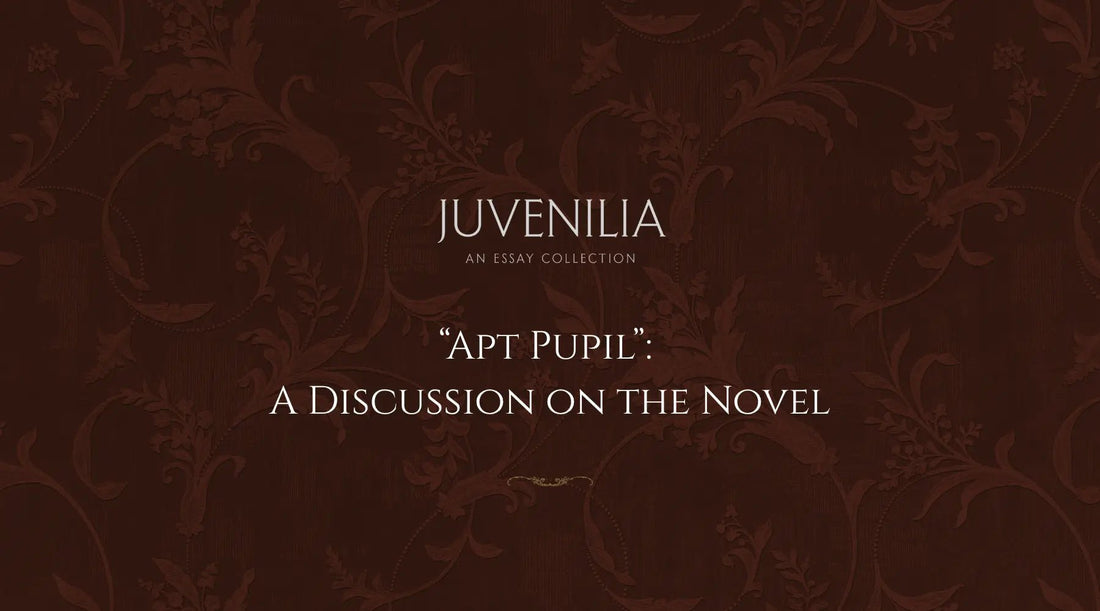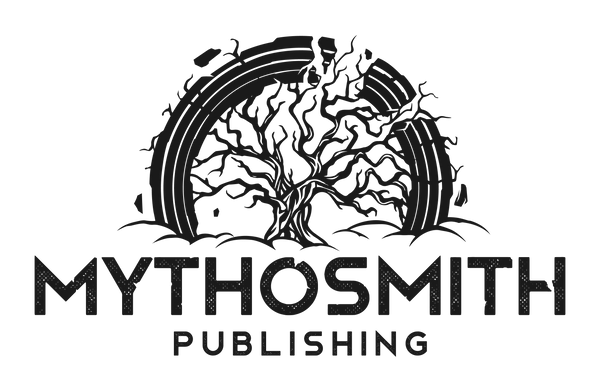
Apt Pupil: A Discussion on the Novel
What does “The child is the father of the man” mean in the context of Tod?
The ‘child is the father of the man’ means that how one is as a child is how they will be in adulthood. I'm not sure I agree, though I want to explain how I see this concept first.
The child is the father of the man: who the man becomes is entirely dependent on who he was as a child, thus the first stage informing the later stages > child being the maker of the man he will later become > decisions a child makes and the experiences the child has informs a belief system that he will more likely than not carry into adulthood (unless something extreme happens like an amazing amount of self-healing.)
In the case of Todd, I don't think it was suddenly, "whoa, here's a Nazi and he has just corrupted me." No. There was something wrong with Todd prior to meeting Dussander. The question here is "Is Psychopathy born or bred?" and in most scientific literature you see, psychopathy is born, sociopathy is bred. Todd was naturally one who experienced little empathy, shallow emotions and a general disconnect. The fact that he was from a good family just meant that he was hidden on a pedestal in plain sight, arguably the best tactic there is (until he takes it too far). In Todd's case, yes, the statement seems to rings true.
Todd is not disturbed by the actions of Dussander while he was in control of concentration camps—he’s absolutely fascinated. Todd researches and stalks Dussander, blackmails said Nazi, and attempts power plays against him at thirteen years old. That's not a person who has been suddenly corrupted by a Nazi, that's a person who is already showing symptoms of something wrong, gravitating to someone who can indulge his darker nature.
Because he gets away with things, he gains confidence and goes further and further with it until it comes to a head. His impulses get darker and darker because he feeds that part of himself, and when it comes to his own parents, literally fantasizes about killing them for speaking to him because they were dull.
Everything about Todd is calculated and analytical, and yet again we have the "logical villain" who is devoid of emotions. The suspension in belief is utilized through mental illness as a justification for Todd's actions, and while it's interesting, it creates a narrative in the public mind that those with mental illness are dangerous. There is a huge fascination with neuro-divergence, and I think the amount of serial killer documentaries we have are telling to that fascination. Are stories like this potentially detrimental to the reputation of those with these mental illnesses? I don’t have an answer to that, just raising the question.
I don't read a lot of King either. I think this is actually the first time I've ever read something by Stephen King, though I did read Horns by his son under the name Joe Hill and I really enjoyed that.
Difference Between ‘Agreeing With’ And ‘Engaging With’
Do you believe there is such thing as too dark? Should people be pushed to engage?
Thank you for the Biography on King! I had no idea it was Lovecraft that got King into horror, but I suppose that would make sense. This also seems to be touching on the ‘uncanny’ that Freud speaks of. I’m connecting so many dots through this course.
‘The oldest and strongest emotion of mankind is fear, and the oldest and strongest kind of fear is fear of the unknown'
~ H. P. Lovecraft.
I don’t think there is such thing as “too dark” for me. I think everyone has a different threshold and that just because someone thinks something crosses the line, it does not make it wrong; it’s just their problem to deal with. The statement here though: “There is nothing wrong with not wanting to confront dark themes”… I am not sure I agree with that. That sort of thinking is the exact thing that can allow said dark themes to occur in real life. Should people be forced to read dark stuff? No, absolutely not, but avoiding it is not really a solution either. Does that mean diving off the deep end into the darkest thing one can find? No. But dipping one’s toe into the uncomfortable is something that I think is necessary to the development of people.
I have never had to put down a book in disgust before. This is not to say I’ve not been shocked, but I’ve never been disgusted because I can accept pretty much anything I encounter, at least in literature, and I’ve never had to put something down because of “not being able to endure”. Do I find the events of Apt Pupil horrifying? Absolutely. Did I thoroughly enjoy the story? Also yes. I will put a book down in cases of exasperation with a character who is acting foolishly, or stop to laugh at humorous parts, but when something is disturbing/politically incorrect/downright wrong, I am fascinated and utterly engaged because I want to understand.
In literature, it’s a safe place to push one’s boundaries in terms of seeing reality. If someone can’t handle bad in fiction, how might they handle it if bad happens in real life? The approach of “avoidance” is hardly a beneficial one.
If someone is triggered, I do think it should be an indication of someone looking within to figure out why, and this is why I disagree with the statement of not wanting to confront it because it just means there is probably fear or unhealed trauma around that issue. I think a lot of people that couldn’t handle Apt Pupil could not read it because “they disagreed”. No one is saying you have to like animal cruelty, but to not want to face that subject just because it makes you uncomfortable does not mean it does not happen in the real world, and it sort of feels like burying one’s head in the sand to avoid truth at times. Everyone should read what they want to read sure, but reading should not be solely for entertainment. There should be some sort of purpose and growth that happens as a result even if you disagree. There is a very difficult and delicate balance here.
I think people should be encouraged to push their boundaries of what they are willing to engage with. I find a lot of people can’t reconcile differences in opinion with people/literature/society at large, where if you disagree, you can no longer associate with that person, and I think that’s a disservice to one’s own growth because people are meant to challenge us. We all will disagree on certain things, but everyone has a right to think what they think. It creates an engaging atmosphere for conversation and growth.
